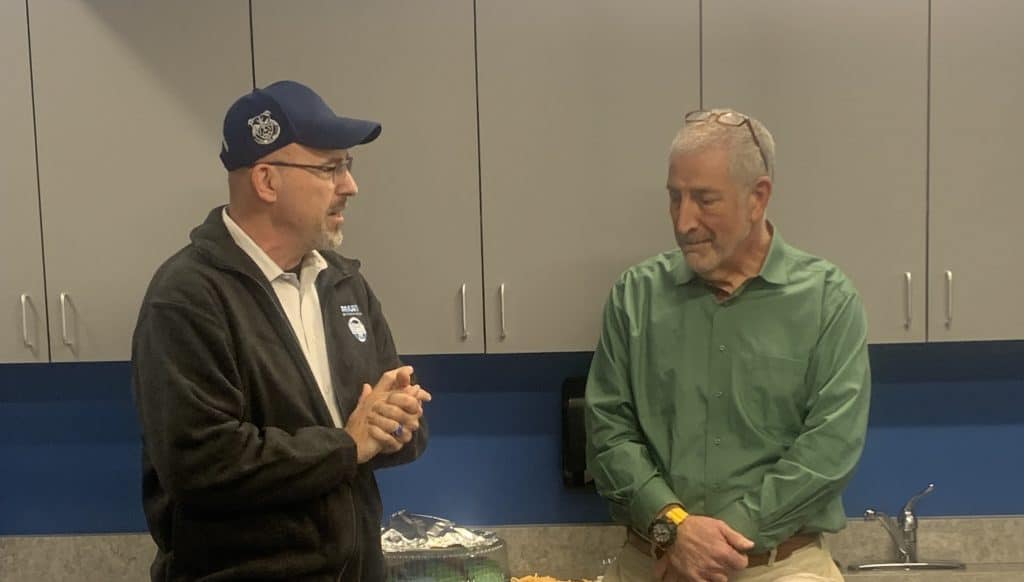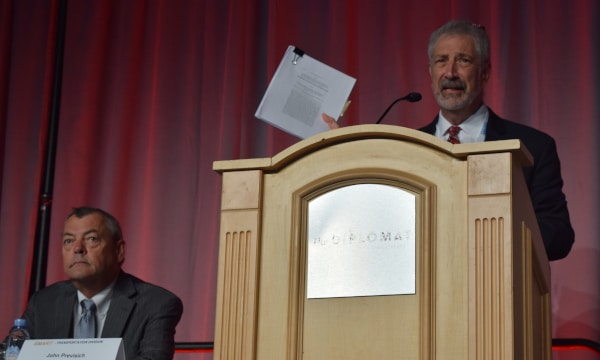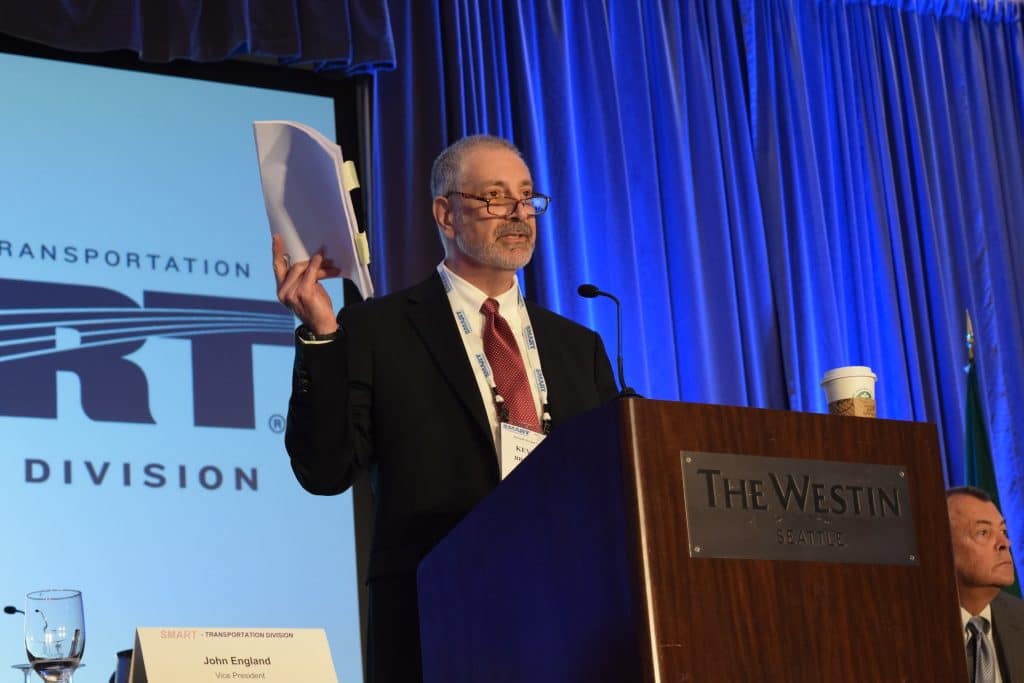It’s December of 2022, and a hearing is taking place in Washington, DC, on the FRA’s two-person crew rule.
As the hearing room fills, one of the attorneys for the railroad stops cold in her tracks. She spots SMART-TD’s General Counsel Kevin Brodar and knows that she’s in for a fight.
That’s the kind of reputation that Brodar earned throughout his professional life: a steadfast champion of the labor movement who stood tall in the courtroom to defend SMART-TD members and protect their rights.
After a legal career spanning nearly four decades, Brodar retired at the end of 2024.
“It’s a little bittersweet, because you work with people and then you develop a bond and it’s more than just a working relationship. It’s a friendship,” Brodar said.
Long road to a labor legal career
After graduating from Duquesne University, Brodar moved across the country to attend law school at Gonzaga University in Spokane, Washington, and initially wanted to be a public defender.
But after his first year of law school, he wasn’t sure that was the path he wanted to pursue.
As he sat in class listening to lectures about real property law, Brodar worried that he made a mistake.
“I’m listening to this and I’m thinking, ‘This is nothing like what I thought it was going to be,’” he remembered.
Once he started his second year of law school, Brodar had the opportunity to choose some electives. One option that caught his attention: labor law.
“That real property class was so Greek,” Brodar said. “This [labor law course] was like everything I knew.”
Growing up in a heavily industrialized section of Pittsburgh, Brodar estimates that 90% of the people in his community were blue-collar workers. By his best guess, 90% of that group were also union members.
His father, brother and an uncle all worked on the railroad, so it wasn’t surprising that Brodar was drawn to practicing labor law.
Earning the highest grade in his class didn’t hurt either.
“That first semester, second year, I was like, ‘Bam! This is it,’” Brodar said.
From the NLRB to SMART-TD, Brodar makes an impact
After receiving his Master of Laws (LLM) with a concentration in Labor Law from Georgetown University and beginning his career with the National Labor Relations Board (NLRB), Brodar was hired by the Brotherhood of Locomotive Engineers (BLET) in 1989 before being approached by the United Transportation Union (UTU) in 1991 to join the organization as a full-time litigator.
After that, he never looked back. Whether it was making an impact through several cases of first impression, litigating in federal district and appellate courts all over the country, or ensuring that SMART-TD members received historic raises and saw no major changes to healthcare during the last round of national negotiations, Brodar never let his professional accomplishments overshadow why he wanted to practice labor law.
“Being a litigator wasn’t the be all and end all of everything,” Brodar said. “It was working for a cause, and that’s why you work on this side of the fence. That’s kind of what drove me all these years: that you’re working for something greater than yourself.”

“From his first day as counsel for the UTU to his instrumental role in shaping the victories of SMART-TD, Kevin has been the ultimate protector of our members,” said SMART-TD President Jeremy Ferguson. “Since I stepped into my role aspPresident in 2019, I’ve been fortunate to rely on Kevin’s knowledge and experience in some of our union’s most difficult fights. Kevin’s legacy is one of dedication and unmatched service to the labor movement, and we all owe him a debt of gratitude.”
SMART-TD Vice President and International Representative Brent Leonard agreed.
“He really does care about the organization,” said Leonard. “Not just the people he works with, but also the members we represent.”
Looking to the future
Stepping up to fill Brodar’s role is Erika Diehl-Gibbons, who was previously associate general counsel at SMART-TD.
Leonard believes that there’s no one who’s better prepared for the job.
“We’re excited to have Erika coming in and filling the role,” Leonard said. “She’s been with us for a long time, and she’s going to be a fantastic general counsel. I know she looks at Kevin as a mentor, and I know he’s mentored her to carry the torch.”
As Brodar wrapped up his lengthy legal career, he said that he’s hopeful he was simply able to make an impact.
“It really has been a blessing to be able to have this job,” Brodar reflected. “It’s something that’s provided a lot of fulfillment that I’ve been able to help people, which was my whole goal.”

